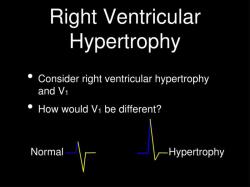What kind of Doctor do I See for my numb fingers?
If you are experiencing numb fingers, the type of doctor you should see can depend on the suspected underlying cause of the numbness. Here are some doctors and specialists you might consider consulting:
Primary Care Physician (PCP) or Family Doctor: Your first step is often to consult with your primary care physician or family doctor. They can evaluate your symptoms, perform a physical examination, and take your medical history. Depending on their assessment, they may refer you to a specialist for further evaluation and treatment.
Neurologist: If your numbness is related to a neurological issue or condition, a neurologist specializes in diagnosing and treating disorders of the nervous system, including numbness, tingling, and nerve-related problems.
Orthopedic Specialist: If your numbness is related to a musculoskeletal issue, such as a pinched nerve, herniated disc, or repetitive strain injury, an orthopedic specialist can provide a diagnosis and treatment options.
Rheumatologist: If you have symptoms of an autoimmune or inflammatory condition like rheumatoid arthritis or lupus, a rheumatologist specializes in diagnosing and managing these conditions, which can sometimes cause numbness and joint issues.
Hand Surgeon: If your numbness is specific to your hand and wrist, a hand surgeon can diagnose and treat conditions such as carpal tunnel syndrome or other hand-related issues.
Vascular Specialist: Numbness in the fingers can sometimes be related to blood flow problems. A vascular specialist can assess the circulation in your arms and hands and provide treatment if necessary.
Physical Therapist: In some cases, numbness may be due to muscular imbalances or improper posture. A physical therapist can help address these issues through exercises and techniques to improve circulation and reduce numbness.
Pain Management Specialist: If your numbness is associated with chronic pain, a pain management specialist can provide a range of treatments to alleviate discomfort and improve function.
Chiropractor: While not a medical doctor, a chiropractor can be consulted for certain cases of numbness, especially if it's related to spinal misalignment or nerve compression. They can perform adjustments to alleviate pressure on nerves.
The type of doctor you see should align with your symptoms and any suspected underlying conditions. It's essential to communicate your symptoms and any relevant medical history to your healthcare provider to help them make an accurate diagnosis and recommend appropriate treatment. If your numbness is sudden, severe, or accompanied by other concerning symptoms, seek medical attention promptly, which may involve going to an emergency room or urgent care center.
Seeking Medical Guidance for Numb Fingers: What Type of Doctor to See
If you are experiencing numbness in your fingers, it is important to see a doctor to determine the underlying cause. Depending on the cause of your numbness, you may need to see one of the following types of doctors:
- Primary care physician (PCP): Your PCP is your general doctor who can provide care for a variety of common medical conditions. If you are not sure what type of doctor to see for your numb fingers, your PCP can refer you to a specialist if needed.
- Neurologist: A neurologist is a doctor who specializes in the nervous system. They can diagnose and treat a variety of neurological conditions, including those that can cause numbness in the fingers.
- Orthopedic surgeon: An orthopedic surgeon is a doctor who specializes in the bones and muscles. They can diagnose and treat conditions that can cause nerve compression, such as carpal tunnel syndrome and cubital tunnel syndrome.
Understanding the Potential Causes of Numbness and Nerve Issues
There are a variety of potential causes of numbness and nerve issues, including:
- Nerve compression: This can occur when a nerve is pinched or compressed by a nearby structure, such as a bone, muscle, or tendon. Nerve compression can be caused by repetitive movements, injuries, or certain medical conditions, such as arthritis or carpal tunnel syndrome.
- Poor circulation: This can be caused by a variety of factors, such as smoking, diabetes, high blood pressure, and peripheral artery disease. Poor circulation can lead to numbness in the hands and feet.
- Damage to the nerves: This can be caused by a variety of factors, such as trauma, infections, and certain medications. Damage to the nerves can lead to tingling, numbness, and weakness in the affected areas.
- Medical conditions: Numbness in the fingers can also be a symptom of a number of medical conditions, such as stroke, multiple sclerosis, and Lyme disease.
Navigating Diagnosis and Treatment Options for Numb Fingers
Once you have seen a doctor for your numb fingers, they will likely ask about your medical history and symptoms, and perform a physical examination. They may also order tests, such as blood tests, nerve conduction studies, or electromyography (EMG).
Once the doctor has determined the underlying cause of your numbness, they can recommend appropriate treatment. If the numbness is caused by nerve compression, treatment may include physical therapy, medication, or surgery. If the numbness is caused by poor circulation, treatment may include lifestyle changes, such as smoking cessation and exercise, or medication. If the numbness is caused by damage to the nerves, treatment may include medication, physical therapy, or surgery.
In some cases, numbness in the fingers may be a symptom of a more serious medical condition. If the doctor suspects that you may have an underlying medical condition, they will refer you to a specialist for further evaluation and treatment.
Here are some tips for navigating diagnosis and treatment options for numb fingers:
- Be honest with your doctor about your medical history and symptoms. This will help them to make a more accurate diagnosis.
- Ask questions about your diagnosis and treatment options. It is important to understand what is causing your numbness and how it will be treated.
- Be patient. It may take some time to determine the underlying cause of your numbness and to find the right treatment.
- Follow your doctor's instructions carefully. This will help to ensure the best possible outcome.
If you are experiencing numbness in your fingers, it is important to see a doctor to determine the underlying cause and get the treatment you need to relieve your symptoms.













